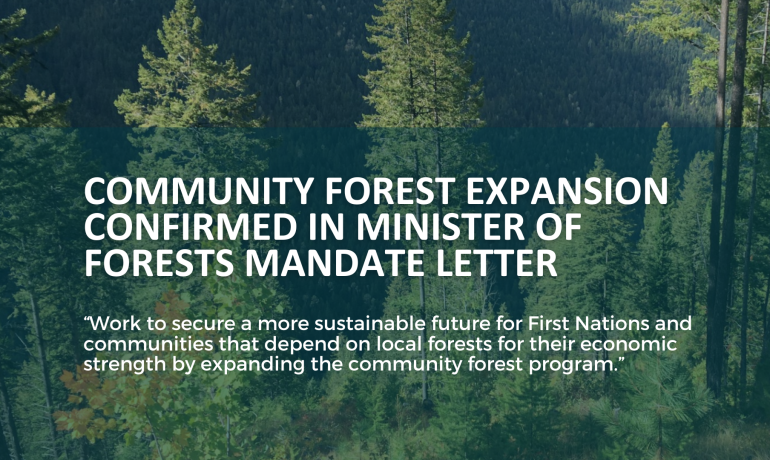Quesnel Mayor Bob Simpson says the opportunity to sit down with local managers from the provincial forestry ministry for close to four hours earlier this month was useful.
During the Oct. 22 city council meeting, Simpson provided an update from the Cariboo Regional District (CRD) board meetings. He noted the special board meeting, held Oct. 3, was very interesting, as they had discussions with the Cariboo area managers from the provincial Ministry of Forests, Lands, Natural Resource Operations and Rural Development (FLNRORD) about the state of forestry in the region and maintenance of forest service roads.
“We had almost four hours with the local FLNRORD folks around the state of timber supply and the state of local forestry,” he said. “It was noted again quite strongly that any dialogue around changing the stumpage system is highly inappropriate. The managers from the local forestry offices were challenged about that right away.”
Simpson told council the area managers also had a message that the changes we are seeing in the local forestry industry are not over.
“They emphasized again that the rationalization that’s occurring in our area is not finished,” he said. “The timber supply is still lower than the current mill capacity, and with changes that are occurring because of the caribou moratorium up north and because of the changes in some of the other mill configurations, they don’t believe that rationalization is finished. It was a pretty strong message to everybody in the room, but we did spend quite a bit of time with them around that and around their numbers.”
Simpson says he did ask the FLNRORD managers to provide more clarity to the public to ease some confusion.
“The one thing we did ask them — and it’s been a consistent message that the mayors of the communities have been asking as well — is for them to try to provide more clarity to the public about what they perceive as long-term, permanent rationalization versus the curtailments,” he said. “That is confusing for people when you’re taking shifts off and a plant is coming down. In the case of the plywood plant for example, there isn’t a shortage today of peelers, there’s no projected shortage of peelers, so there’s confusion around that.
“The other piece that there’s a little bit of confusion about is there is confusion around bush waste and pulp logs because as sawmills go down in number, the residual businesses — pellets, pulps, OSB, MDF — that really, their business models are predicated on sawmill waste, it’s pretty hard to get people to understand when you’ve got so much bush waste out there, why can’t you get it in and feed those mills. They’ve committed to try to give a little more clarity around that piece as well.”
IMAGE: With timber supply declining from now to 2030, B.C.’s forest industry is in a major transition. (Black Press Media)
Related Post
Minister of Forests Mandated to Expand BC’s Community Forest Program
In the recently released mandate letter to the Minister
BCCFA Congratulates Newly Announced Three Rivers Community Forest in Quesnel, BC
The BC Community Forest Association (BCCFA) is proud to



